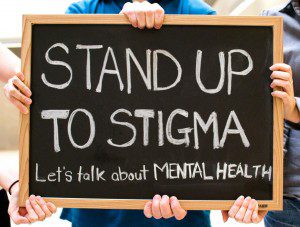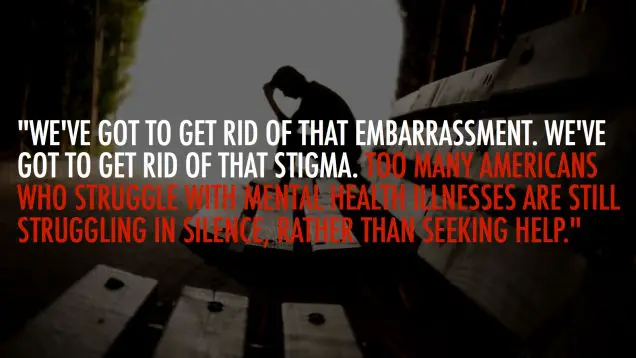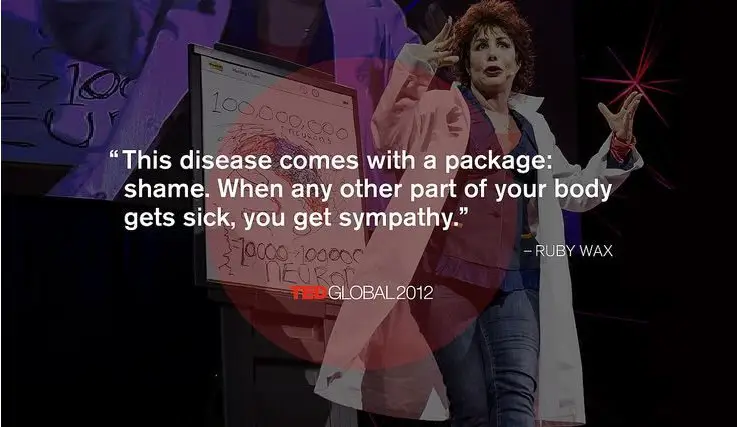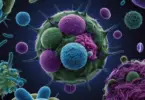Guest Writer for Wake Up World
I had suffered from severe depression since my childhood. I was diagnosed with both clinical depression and post-traumatic stress disorder (PTSD) which tormented me for nearly 3 decades. I attempted suicide and suffered a number of brain seizures as a result. Now in my 30’s, I was able to overcome my condition, not because of but despite the “help” I received by the medical and mental healthcare systems. As well-intended as the individuals working in the mental health system might be, at least in my experience, they were not always helpful. In fact, many times they proved to be more harm than good to my fragile state of mind.
The main reason for the general lack of success of today’s mental healthcare system is that it considers mental health a science of the body, assessing “mental health issues” from a rigid, reductionist point of view. Practitioners try to isolate a physical cause, then proceed to treat only the symptoms. But, in doing so, they neglect the most important aspect of curing any mental (or physical) disease — the spiritual aspect. From my own personal experience of overcoming the major depression, I can say without a doubt that the healing of the spiritual aspect of my condition was the single most important factor that led me to successful recovery.
[pro_ad_display_adzone id=”110028″]
There are no doubt people who genuinely suffer from mental disorders, be they genetic or otherwise. However I have come to believe that for most people, depression of any kind (depression, seasonal disorder, post-traumatic depression) as well as other kinds of “mental disorders” (such as bipolar, PTSD, anxiety, borderline personality disorder to name a few) are really not mental disorders at all. If we absolutely have to call it a “disorder”, then the more accurate term would be a spiritual disorder, or better yet, a spiritual condition. The use of the term “mental” is not only inaccurate in these cases, falling well short of describing the anguish they cause, but the word “disorder” also helps to create and reinforce negative judgments from which stigma around these conditions arises.
The Reality of the Mental Health System
There was a time not so long ago when, if a wife dared to question her husband and his decisions, if she expressed her opinion freely, and if her way of thinking did not match that of “the man of the house”, she could run into a risk of being locked up in a mental institution, against her own will. As reported by the Tennessee Genealogical Society:
When researching our women ancestors, one place is often overlooked: the insane asylum. Some of the reasons our grandmothers were institutionalized are quite unbelievable. In the early 1800’s wives and daughters were often committed for not being obedient enough to their husbands or fathers. Women were expected to be homemakers and not much was given to their education. If a woman spoke out and went against the “norm” she could be committed.
Is the mental health profession really behaving any differently from those old days? We may think that as a society we have evolved beyond this point, and that these kinds of outrageous practices do not take place in the world we live today. The denial we live in though does not change the reality; social norms may have change over time, but the way we as a society treat people who don’t fit those standards has not.
After my suicide attempt, I was locked up in a mental facility against my will where I spent almost 2 months, with no benefit to my well-being whatsoever. The bill from the hospital of almost US$100,000 was picked up by a collections agency and it went straight to my credit report, ruining my perfectly clean financial record. While in the hospital, I was forced to take all kinds of anti-depressants — again, against my will — which were continued to be prescribed to me when I was undergoing outpatient therapy later on.
The irony here is that, shortly after my release, I intentionally overdosed on those anti-depressants, and I almost didn’t make it that time.
My point is, naming depression and other “abnormalilties” as a mental illness and then forcing those who are suffering into institutional and pharmaceutical treatment, doesn’t really do them any good. The cause of depression is not a prozac deficiency, or zoloft, or effexor, and in my experience, treating depression this way does not help the person suffering in the long term; it only benefits the health establishment and pharmaceutical companies that profit from doing business this way. Today’s mental health paradigm treats our personal health and well being as a business. The system asserts government-sanctioned power over anyone they diagnose with a “mental illness”, which damages their senses of Self and free-will, and turns them into long-term customers of the system.
Let’s Put “Mental Health” Under The Microscope
Let’s put some things here under the microscope, shall we?
Firstly, here is what the World Health Organization (WHO) defines as perfect mental health:
So, how do they define mental illness? According to WHO, mental illness is considered to be a disease of the mind, defined by the absence of those mental health characteristics.
Although it is only short, there are plenty of inaccuracies in that definition statement, which undoubtedly contribute to the stigma that still surrounds mental health.
Inaccuracy #1: (... the individual realizes his or her own abilities)
While still struggling with depression, I worked internationally as a fashion model. I was also fully engaged in writing my book, Life Realized, which actually helped contribute to my healing. Sure, I might had doubted my work at moments, but over all I did not question my ability to write — even though I was writing in English, which is not my native language! Over all, despite the depression I lived with, I was still able to see my writing skills as a gift.
Inaccuracy #2: (… can work productively and fruitfully)
Really? This statement suggests that only “mentally healthy” people are able to work productively and contribute to society.
 After I deliberately overdosed on sleeping pills, I was rescued by emergency services workers (the fire department). Shortly after, in gratitude, I actually joined the fire-fighting academy and became a volunteer fire-fighter myself. During that time, I was actually praised for my dedication and outstanding performance by the fire department Chief. This was only few months after my suicide attempt, and I was obviously still depressed, or as the “experts” would define, mentally ill. I went on to receive A Grades on my Emergency Medical Technician exams, and was able to pass the National Registry of Emergency Medical Technicians (EMT) on my first attempt — which frankly, isn’t the easiest thing to do.
After I deliberately overdosed on sleeping pills, I was rescued by emergency services workers (the fire department). Shortly after, in gratitude, I actually joined the fire-fighting academy and became a volunteer fire-fighter myself. During that time, I was actually praised for my dedication and outstanding performance by the fire department Chief. This was only few months after my suicide attempt, and I was obviously still depressed, or as the “experts” would define, mentally ill. I went on to receive A Grades on my Emergency Medical Technician exams, and was able to pass the National Registry of Emergency Medical Technicians (EMT) on my first attempt — which frankly, isn’t the easiest thing to do.
Which brings me to the following inaccuracy…
Inaccuracy #3: (… is able to make a contribution to his or her community)
I think my previous notes have clearly contradicted this statement already, but let’s explore some more.
 Here you see a picture of me when I travelled to Kenya. Completely broke financially (which certainly didn’t help my mental state) I went to Kenya on my own to help care for homeless children, without any organization or support and with only $400 in my pocket; and all within just weeks of myself having a miscarriage.
Here you see a picture of me when I travelled to Kenya. Completely broke financially (which certainly didn’t help my mental state) I went to Kenya on my own to help care for homeless children, without any organization or support and with only $400 in my pocket; and all within just weeks of myself having a miscarriage.
There is no doubt I was suffering depression during that time, but that didn’t stop me from contributing to the lives of others. My depression did not take away compassion for other people, only for myself.
You can watch one of my videos from my time in Kenya, just below.
The other important thing – something that everyone should know and remember – is that, just because someone is smiling and “functioning” in their society, it doesn’t mean that person is mentally healthy. According to statistics published by MentalHealthConnection.org:
Analysis of the results of the National Comorbidity Survey Replication of more than 9,000 people indicates that “approximately half of Americans will meet the criteria for a DSM [Diagnostic and Statistical Manual of Mental Disorders] disorder sometime in their lifetime”. (Kahn & Langlieb, 2005, p.1100)
The National Institute of Mental Health reports that “an estimated 26.2 percent of Americans ages 18 and older, about one in four adults, suffer from a diagnosable mental disorder in a given year”… When applied to the 2004 U.S. Census residential population estimate for ages 18 and older, this figure translates to 57.7 million people. (The Numbers Count, 2007)
Dr. Keith Dixon, president of Cigna Behavioral Health, states that “more than 70% of people diagnosed with depression are employed”. (Sipkoff, 2006, p.4)
Further, the University of Michigan Health System reports that at any given time, 1 in 10 employees experiences depression. (Forgarty, 2006, p.46)
A Message to All Health Professionals…
The reality is that we, “the mentally ill”, can become more than proficient than most in hiding our feelings, and one of the main reasons we tend to do that is because of the stigma and judgment we receive from others — often from those wearing white coats.
After I attempted suicide, I ended up in a hospital emergency room and a psychiatrist was assigned to my case. In the space designated for ‘diagnosis’, he wrote the phrase on my medical records: “Born to lose.” Then, based on his professional and well-rounded assessment (sarcasm) of my condition, he indulged himself further by prescribing treatment, recommending that my boyfriend (with whom I was living with at that time) should not only not marry me but should break up with me and kick me out of the house, “for his own good”. Even though I had just tried to take my own life, I knew at that moment that his behavior was unacceptable. Unfortuntely, given his willingness to record such an offensive opinion (which is exactly what it was – a personal opinion) on my official medical records, it is obvious that this kind of treatment of the “mentally ill” is considered quite normal within the ranks of the mental health establishment.
What you are forgetting is that negative beliefs actually harm our physical, mental and spiritual health.
So, my message to all mental health professionals is this;
If you do not have any understanding or compassion in your heart for the people you supposedly “care” for, you are in the wrong profession. Even if you restrain yourself from voicing such offensive opinions out loud, as I experienced in that emergency ward, please understand — we can see it in your eyes and your facial expressions. Depressed people have a gift of reading other people’s faces; that gift is crafted by the practice of controlling our own facial expressions, constantly trying to mask our feelings to please others in order to gain approval, acceptance; or in other words, love.
In the mental health profession, where you are legally empowered to retain patients and make decisions on their behalf, against their will, you have a moral obligation, not just a professional one, to arise to the high standard that is expected of you. You are in a position of trust, and are dealing with people at the lowest and most vulnerable. Our society respects and looks up to you, just as they have been taught to look up to the entire medical profession, and people take your opinion as a fact — often without questioning it. In the words of Lissa Rankin MD:
Many patients take an auto mechanic approach to health, handing over their bodies to doctors they may not even screen as carefully as they choose their auto mechanics, never questioning what the doctor says, seeking clarity when they’re confused, asking for second opinions when they doubt the diagnosis or treatment plan of the doctor, or taking their bodies elsewhere when something doesn’t feel right.
In your profession, you enjoy the respect those few letters MD or Ph.D next to your name tend to afford you (which you’ve earned) but you forget sometimes that with such a high prestige comes an even higher level of responsibility. We need to feel safe enough to go to the dark places that cause these spiritual conditions, and trust that we can speak the truth to each other, and that you have our spiritual healing as your first and only priority.
So next time you’re tempted to analyze a patient in the same way a mechanic analyzes a car’s engine, and decide to apply labels to your patients (both in your mind and on your notepad) — please stop and think. Think deeply, and then… think some more. You are not mechanics, you are dealing with the spiritual, mental and physical health and well-being of real human beings. And if you don’t believe the establishment you are a part of can genuinely help your patients, it is up to you to speak out and advocate for better treatment on your patient’s behalf.
I admit that sometimes, I still feel anger towards the mental health establishment. Sometimes I have to remind myself that even the doctors whose judgment had hurt me in the past, and whose tactics I see hurting other people in the same way, are just human beings like everyone else on this planet. And I remind myself that forgiveness of your faults is an important part of my own healing. Just as anyone else, you should not be judged. But we, the “mentally ill”, need better support from you and your profession. And with diagnosed “mental illness” cases steadily rising, we need it now.
Many of you, I’m sure, don’t have a clue what it feels like to be depressed or to suffer from a “mental health” condition. I’m sure that, most of the times at least, you do everything you think needs to be done to help the people who seek (or are forced into) your care. But my intention here is not to ‘bash’ anyone; my intent is to open the eyes and the minds to the reality of your profession, and share the perspective of your patients, in hope we can reform the healthcare establishment and finally begin to find real answers for people suffering from spiritual conditions like depression, bipolar and PTSD.
People who are entrusted into your care are often highly sensitive, which is a sign of a highly evolved being. We know how much it hurts to be judged, and we can tend to be very compassionate and very understanding individuals. We are often very gifted, talented and intelligent. If we are given appropriate care instead of harmful labels, we “insane, crazy, nutty, wacko, coo-coo, loonies”, and those of us you think are simply “born to lose”, can turn out to be healers, leaders and geniuses in disguise.
We ask that you recognize our spiritual vulnerability, and honor it at all times.
Final Thought
If you are interested in learning more, you may like to read an article I recently found online called “The Real Problems With Psychiatry“. It features an interview with author and practising psychotherapist Gary Greenberg, who provides an insider’s view on the state of the mental health system. He contends that the American Psychiatric Association‘s Diagnostic and Statistical Manual of Mental Disorder (DSM-5) which defines all mental illness — psychiatry’s “bible” — is an unscientific product of politics and bureaucracy. It will blow your mind!
Previous articles by Elzbieta Pettingill:
- I Suffer From Depression: Don’t Be Afraid of Me
- Overcoming Depression: The Birth of a Healer
- Being Too Nice Can Contribute to Depression
- Everything Is Perfect Just The Way It Is
- The Trouble Is… We Think We Have Time
- Depression and Spiritual Awakening: Overcoming Abuse and Depression Through Conscious Forgiveness
- The Angel That You Are
- Forgiving Is Like Giving Birth (Without The Epidural)
About the author:
 Now residing in Honolulu, Hawaii, Polish-born Elzbieta Pettingill is an author, former fashion model and survivor of depression. Elzbieta suffered abuse and rape in her childhood, and was subsequently diagnosed with depression and PTSD which followed her from childhood through to adulthood. Completely let down by the medical and psychological establishments, Elzbieta finally realized that only she could change her mind, and finally overcame her depression in her 30’s through a process of forgiveness and conscious spiritual awakening.
Now residing in Honolulu, Hawaii, Polish-born Elzbieta Pettingill is an author, former fashion model and survivor of depression. Elzbieta suffered abuse and rape in her childhood, and was subsequently diagnosed with depression and PTSD which followed her from childhood through to adulthood. Completely let down by the medical and psychological establishments, Elzbieta finally realized that only she could change her mind, and finally overcame her depression in her 30’s through a process of forgiveness and conscious spiritual awakening.
Now ‘self-realized’, Elzbieta writes for people who suffer from depression, and has made it her mission to change the way we think of depression and “mental illness”. You can connect with Elzbieta at www.thegiftofdepression.blogspot.com.au and www.facebook.com/LifeRealized.
Elzbieta’s story also forms the basis of her Amazon-bestselling book, Life Realized…
Life Realized
By Elzbieta Pettingill:
Despite what modern medicine tells us, depression CAN be overcome. Elzbieta Pettingill’s book Life Realized is a personal memoir in which she bravely shares her personal story of overcoming decades of depression and suicidal tendencies, naturally and without the help of the medical and psychological health systems that failed her (and so many others like her.)
Elzbieta finally realized that only she could change her mind, and now ‘self realized’, learned to use her suffering as an engine to propel her towards not only overcoming her ongoing depression, but to understanding who she really is – and who we ALL are – on a much broader spiritual level.
Open, honest and vulnerable, Elzbieta’s account of her personal experiences, and the lessons she learned along the way, is both uplifting and enlightening. It is Elzbieta’s testimony that, no matter what life throws at us, no matter what circumstances we find ourselves in, no matter what, we are always loved… even if it seems to be the exact opposite.
‘Life Realized’ is available here on Amazon
[pro_ad_display_adzone id=”110027″]












